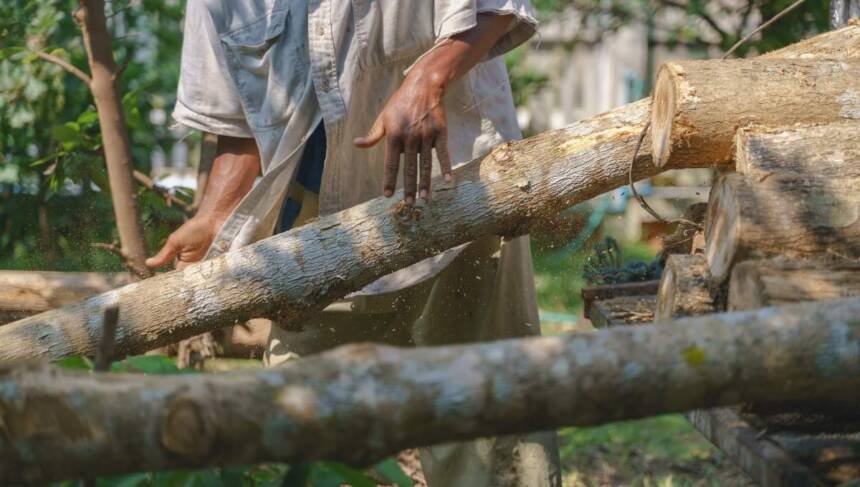A Florida couple was sentenced to nearly 5 years in prison yesterday for smuggling some valuable lumber into United States from China and Russia.
According to prosecutors, Noel and Kelsey Hernandez Quintana, along with their employee Marta Angelbello, made a lot of money by knowingly mislabeling Chinese plywood to avoid heavy anti-dumping taxes imposed in 2017. Quintana carried out an elaborate scheme over approximately 4 years, using shell companies in 7 different countries to carry out this scam.
In total, the couple were told Thursday they must give up $42 million of their earnings and pay $1.6 million to reimburse the government for storage costs related to the seized wood products. Additionally, after completing his 57-month prison sentence, he will have to remain under surveillance for 3 years, and will not be allowed to do any import or export work.
Angelbello got off very easily – only 3 years of probation with 90 days of house arrest and a $3,000 fine.
Assistant Attorney General Todd Kim noted that Quintana’s actions have broader implications, pointing out that illegal timber trafficking can cause significant harm to the environment. He also mentioned how accurate plant import declarations help protect domestic producers from unfair competition from foreign countries.
This case shows how environmental crimes, customs fraud, shell companies and financial crimes are linked, revealing the clever tactics adopted by today’s smugglers.
As stated in the plea agreements, Quintana created seven shell companies in Florida and put his friends and family in charge.
Shelley became addicted to customs fraud by continuously falsifying import documents for loads of plywood from 2016 to 2020.
The eighth financial shell made it easier for US distributors to pay for cheap, illegal lumber. The complex corporate setup made it difficult for Quintana to see how important his role was to the entire operation.
Until 2017, shells brought in Chinese hardwood plywood without any problems, and they honestly mentioned it on customs documents. But then in April, the government imposed extremely high anti-dumping duties of more than 200% on those goods in the name of supporting American manufacturers.
After that, Quintana Shells started making fake customs declarations to hide where the imports were really coming from and avoid duties. Their plans changed over time, but originally they would ship Chinese lumber through other countries and repackage it into different containers before actually shipping it.
Some papers stated that Chinese shipments came from Russia or other countries, even though they never stopped there. And some mistakenly labeled the wood as duty-free.
The schemes allowed Quintana to keep flooding American markets with cheap Chinese lumber that was likely harvested illegally.
After learning that the federal investigation was ending, Quintana made it to Panama and then headed to Montenegro. Ultimately, after going through extradition materials, he pleaded guilty to illegally bringing in lumber and conspiring to defraud customs under the Lacey Act.
Noel Quintana also noted examples of timber smuggling and importation of plant products without proper scientific and harvest location declaration.
“The defendants undermine U.S. policy by avoiding legal tariffs on plywood manufactured in China using Russian wood,” said U.S. Attorney Markandi LaPoint, who will vigorously prosecute similar schemes. I promised.
The sentencing is the result of a team effort by agencies such as Customs, Fish and Wildlife and Homeland Security Investigations to combat environmental crime and illegal trade.



